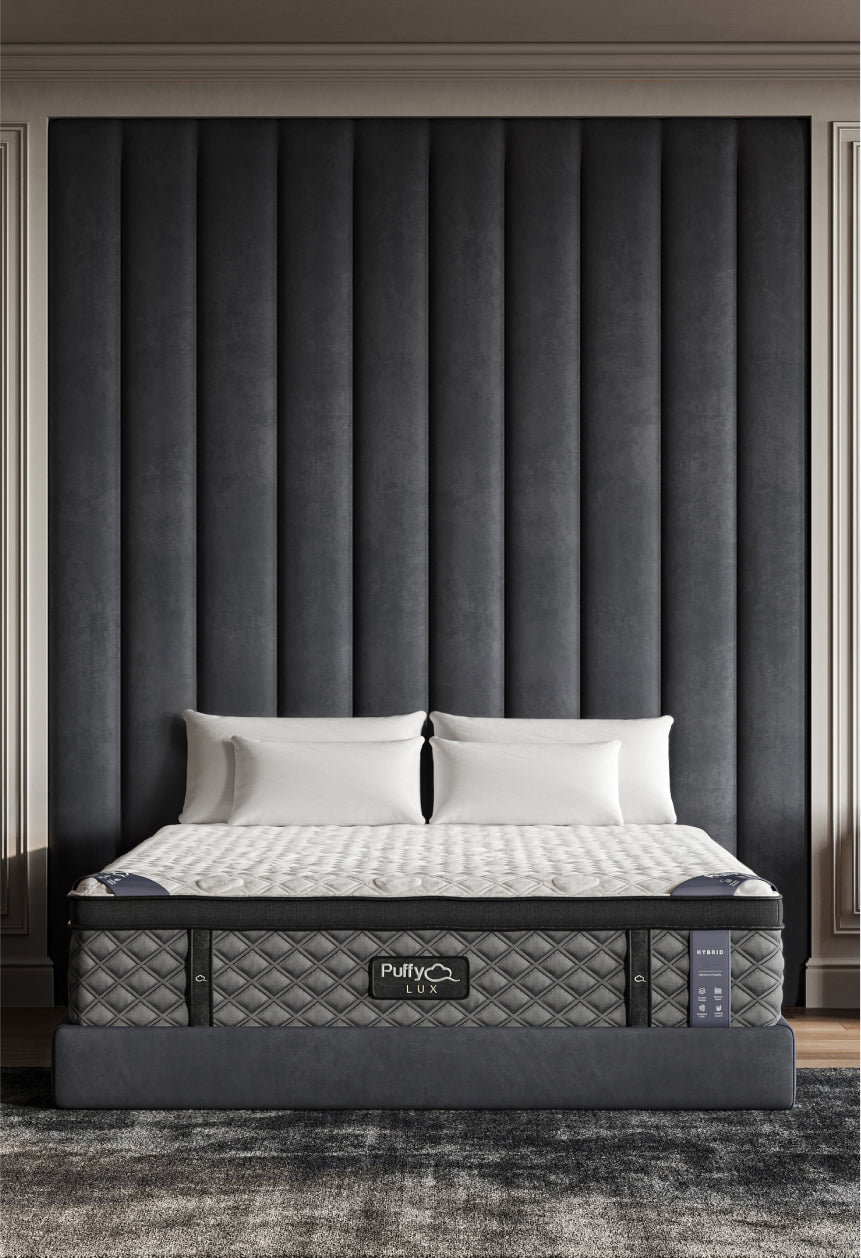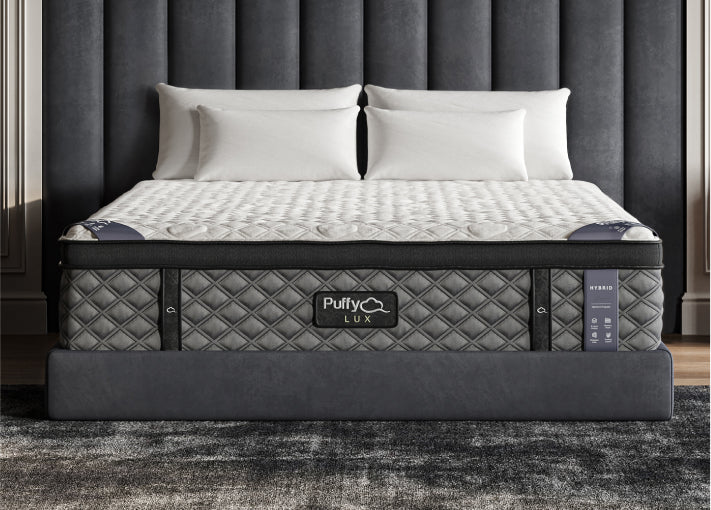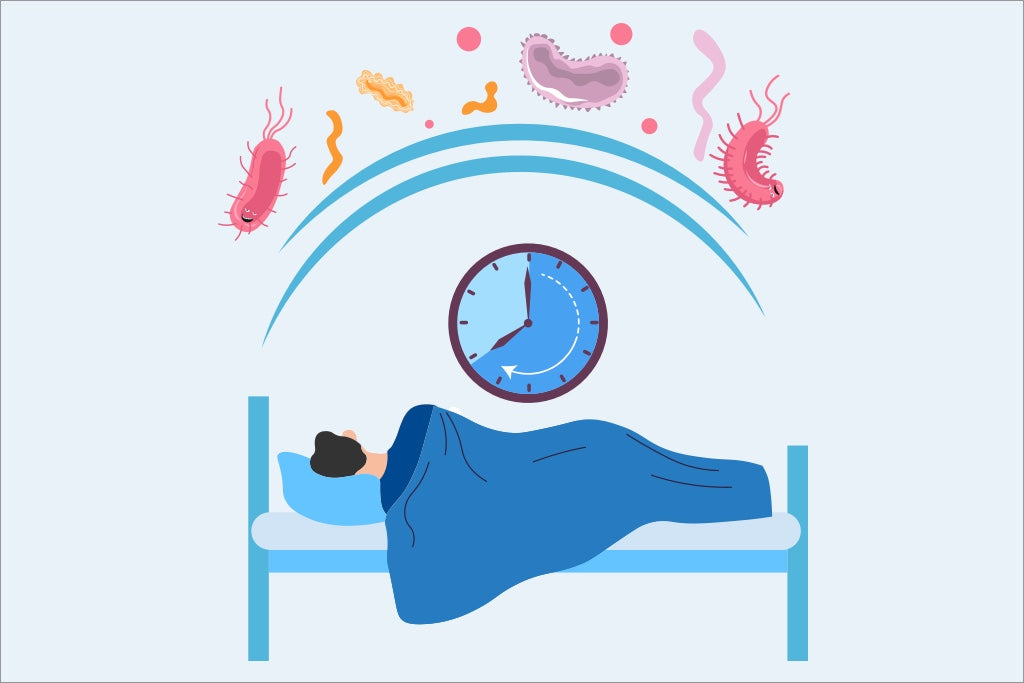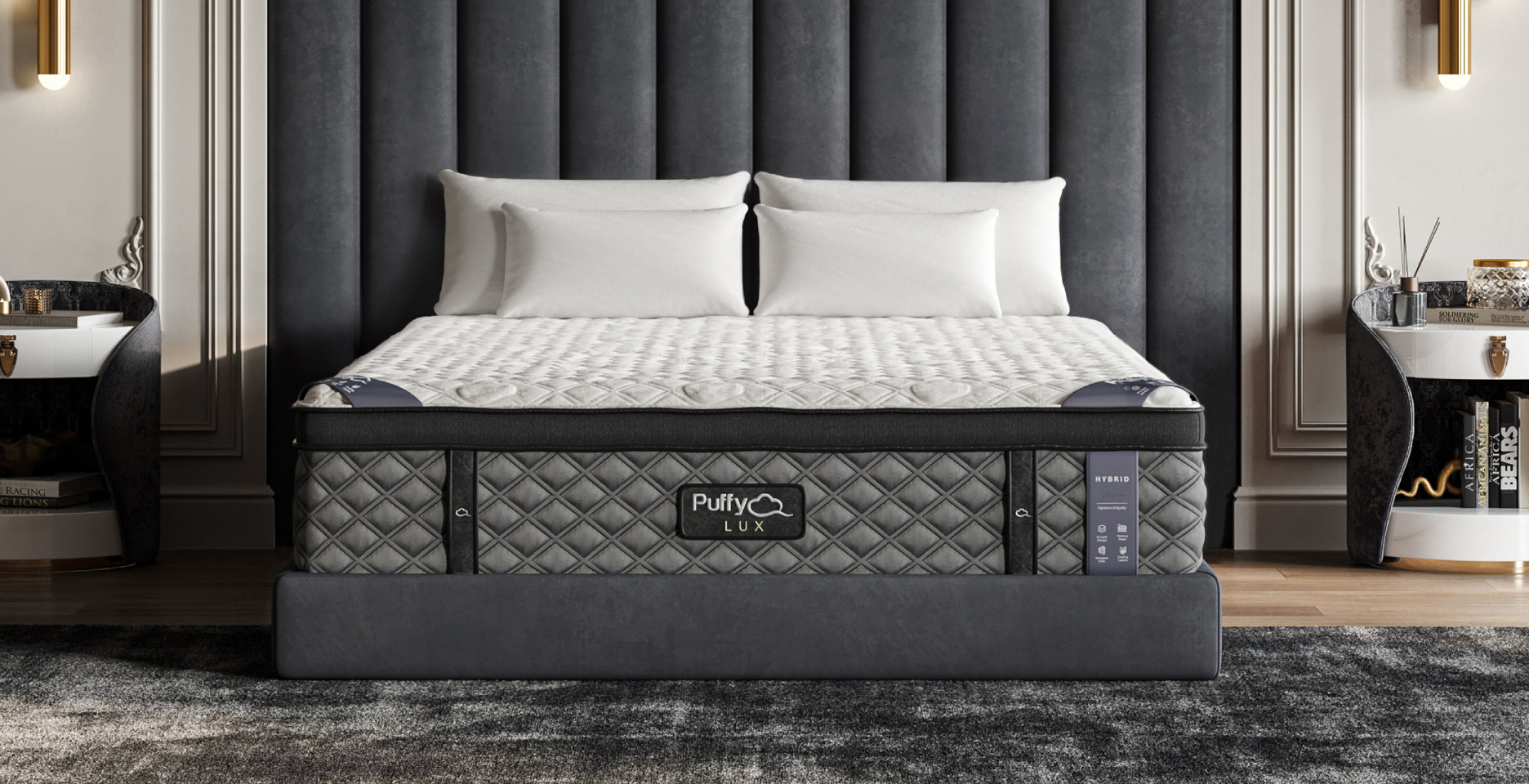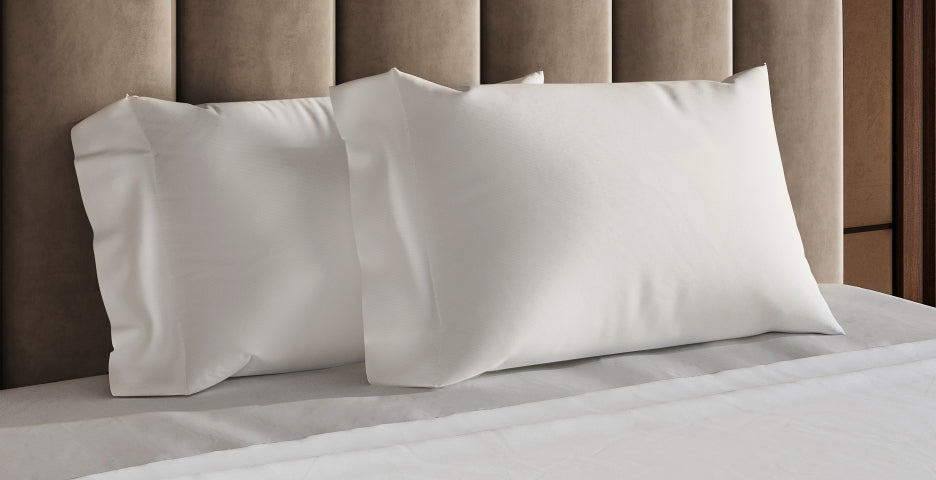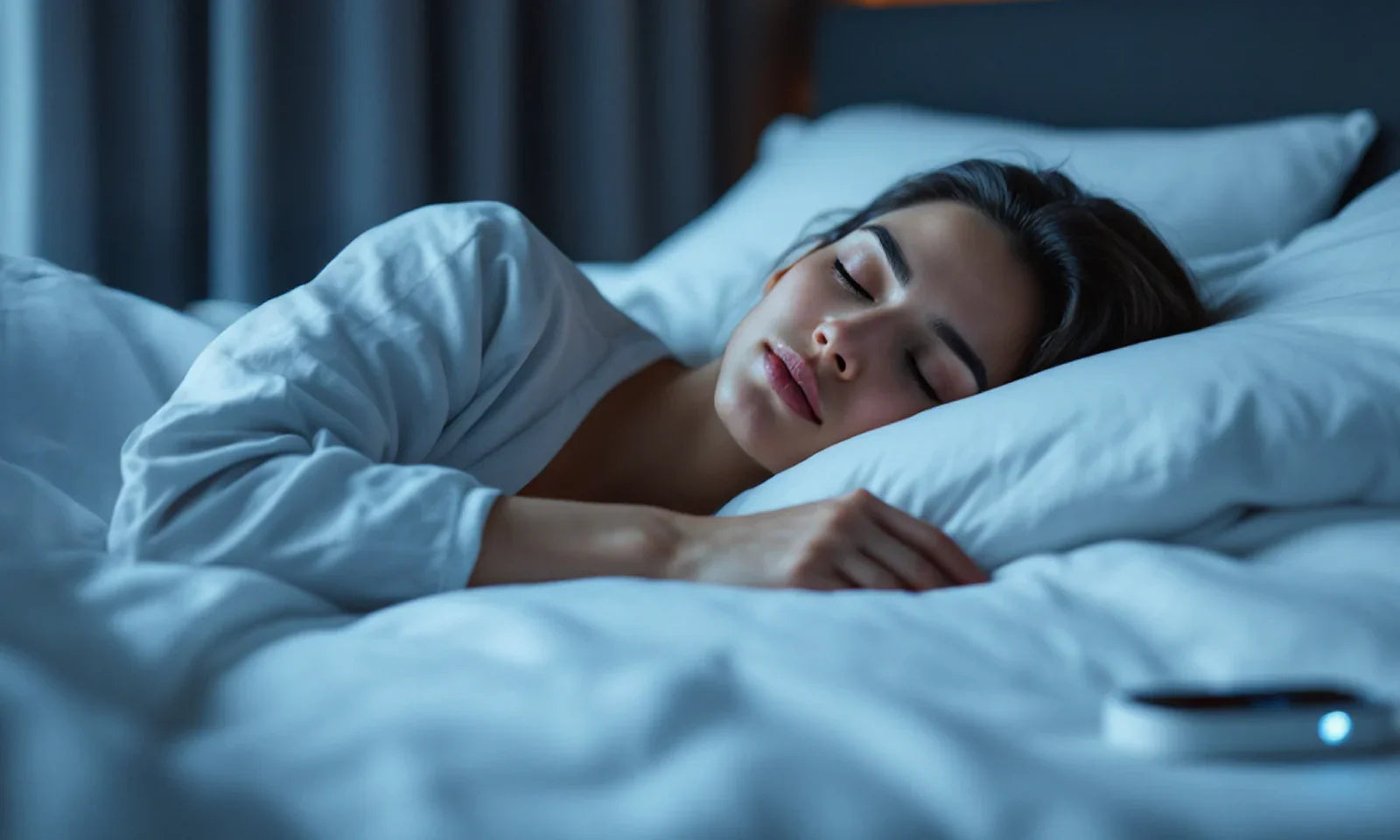Have you been taking your sleep for granted? If you haven’t been getting enough sleep and your schedule is all over the place - now may be the time to fix it. Sleep science has shown a direct relationship between your sleep and immune system. Thanks to extensive research, we now know that both the sleep and immune system significantly impact each other.
If you have an infection or a virus, it’ll affect your sleep quality - if you have sleep deprivation, it’ll weaken your immune system. In this post, you’ll get a better understanding of sleep and how it can be a tool to strengthen your immunity.
Table of Contents
How Does The Immune System Work?

The immune system is what protects our bodies from foreign invaders, such as bacteria, viruses, and toxins. It is a mass network that consists of proteins, cells, and organs that work together to protect the body. There are two parts of the immune system: innate immunity and adaptive immunity. Innate immunity is a pre-existing defense system in your body that works as the first line of defense - it isn’t generated from an outside antigen, like a vaccination or virus.
Whereas adaptive immunity, also known as the acquired immune system, is a defense system that is continuously developing. Unlike innate immunity, it is the result of an outside antigen. Adaptive immunity fights against pathogens, such as diseases or infections, and works on eliminating them or preventing their growth. This type of immunity is developed to target specific attacks in the body.
An integral part of the immune system is T cells or helper cells, which is a type of white blood cells. When a foreign antigen enters the body, it stimulates the production of proteins called cytokines, which fight against the pathogen. Additionally, another protein called integrin is released and it helps T cells bind to the antigen to regulate cytokine activation. Cytokines control the body’s immune response, which can be in the form of a fever, fatigue, redness, or inflammation - ultimately, it eliminates the threat.
Sleep And Immune System: Understanding Their Impactful Connection

Sleep allows your body to recover and regain energy to function the next day. Everything from your sleep quality to your sleep wake cycle highly affects your immunity. Our internal clock or circadian rhythm regulates our sleep as well as our immune system, this is based on the inflammatory response that occurs during sleep.
Research has shown that factors like stress, anxiety, or adrenaline, can disrupt the binding of integrins with T cells, which is necessary to fight off antigens. When you’re asleep, melatonin, a sleep-promoting hormone, decreases your stress hormones and adrenaline levels while cytokines production is increased. Cytokines are an essential component of your immune system. As a result, an efficient amount of sleep strengthens your immune system.
Sleep deprivation will lessen the production of cytokines and as a result, weaken your immune system - your body won’t have the strength to fight pathogens, especially those associated with sleep deprivation like diabetes, high blood pressure, or cardiovascular disease. Furthermore, this is why your body needs to rest and sleep when you’re ill - it needs the sleep boost to fight off the symptoms.
Check out Puffy mattress reviews from real customers and see how we compare with other brands.
A study that was conducted on 15 healthy individuals showcased the vital connection between sleep and immune system. The participants were split into two groups - one group was subjected to follow an 8-hour sleep schedule for a week while the second group was subjected to stay awake for a 29-hour period. The study concluded that group one had a higher level of cytokine activation than that experienced in group two. This indicates that sleep is the main factor that allows T cells to function properly.
How to Promote Better Sleep
Now that you understand how sleep affects immunity, consider tweaking some of your sleep habits to achieve healthy sleep and as a result, boost your immune system.
Improving Your Sleep Schedule: Going to bed and waking up at the same time every day promotes healthier circadian rhythm, which regulates your sleep and immune system. A consistent sleep schedule may be hard to accomplish if you have a busy work schedule but it’s important to try and keep it as stable as possible.
- Getting Enough Sleep: The right amount of sleep for adults ranges from 7 to 9 hours every day. Getting 6 or less hours of sleep can have negative effects on your mind, body, and energy levels. A good night’s sleep is critical for better immunity.
- Reduce Stress Before Bedtime: It can be hard to free your mind when it’s time to sleep. Consider practicing relaxation techniques like having a warm bath, meditating, or going for a walk to reduce stress levels and encourage a calmer mental state.
- Change Your Sleep Environment: Your bedroom needs to be enhanced for proper sleep. Things like light, noise, room temperature, and even your mattress, can disrupt your sleep. Make sure the room is dark, quiet, and cool when it’s bedtime, and that your mattress is comfortable.
- Avoid Electronics Before Sleeping: The blue light that emits from computers, TVs, and phone screens can harm your sleep quality. And so, it is best to avoid them when trying to fall asleep. Try to limit your exposure to these lights for at least an hour before sleeping.
- Avoid Drinking Caffeine at Night: Coffee and other caffeinated drinks like soda or energy drinks work as stimulants and affect sleep. It blocks out adenosine, which is a compound that makes you tired and will make it hard to fall asleep. It is also best to reduce alcohol drinking at night because it prevents you from getting deep sleep, which will affect your mood and productivity the next day.
- Exercise Before Bedtime: Exercising a few hours before sleeping helps you fall asleep faster as you exert a lot of energy, and so your body relaxes. However, it also improves sleep quality because it increases the amount of deep sleep you get. When you reach REM sleep, which is the deepest stage of sleep - your stress hormones are reduced and immune function is enhanced.
- Eat Healthy Snacks at Night: Eating a heavy meal late at night will not just reduce quality sleep, but it’ll also prevent your body from adequate digesting. Consider having your last meal at least 3 hours before sleeping. If you get hungry at night, try eating light snacks like nuts, dark chocolate, leafy greens, avocado, yogurt, or fruits.
What Are The Other Effects Of Sleep Deprivation?
Sleep deprivation can be the result of stress, anxiety, jet lag, an irregular circadian rhythm, or sleep disorders like insomnia or sleep apnea. A lack of sleep can have long-term and short-term effects, these effects include:
- Health issues like obesity, high blood pressure, diabetes, or heart disease
- Excessive daytime grogginess
- Loss of memory and trouble staying focused
- Lower level of productivity
- Risk for accidents and injuries, especially when driving
- Mood changes - easily irritated or frustrated
- Increase stress levels, anxiety, and depression
- Physical symptoms like puffy eyes or dark circles under the eyes
How To Boost Your Immune System

Getting plenty of sleep is key to maintaining a healthy lifestyle. It’s important to give your body enough time to produce the agents that fight against infections and diseases. As a result, getting enough sleep every night is crucial. Other ways to boost your immunity include:
Maintain a Healthy Diet
Regular nourishment and ensuring you’re getting all of the essential micronutrients will strengthen your immunity. Some micronutrients that significantly change immune responses are iron, zinc, folic acid, and Vitamin B6, C, and E. You can find a lot of these nutrients in the following foods:
- Iron: green vegetables like broccoli or spinach, tofu, and lentils.
- Zinc: Salmon, tuna, shrimp, almonds, beans, and whole grains.
- Folic Acid: Leafy greens like lettuce, kale, or spinach, peas, chickpeas, and brussel sprouts.
- Vitamin B6: Green vegetables, tuna, salmon, and chicken.
- Vitamin C: Strawberries, oranges, tomatoes, and broccoli.
- Vitamin E: Nuts, sunflower seeds, leafy greens, and avocado.
If you don’t like vegetables, you can look into taking vitamin supplements. However, experts don’t recommend this because your body absorbs more nutrition through food. Always remember to carefully wash your fruits and vegetables as well as your hands before eating.
Exercise Regularly
Exercising is just as important as eating well-balanced meals. A moderate to vigorous amount of exercise per day for at least 30 minutes, can reduce inflammation and improve your immune function. Exercise enhances the blood flow, which accelerates the movement of immunity cells in your body. The best type of exercises to boost your immunity are cycling, running, or even just walking - these exercises don’t require equipment or a certain skill!
Always Stay Hydrated
Drinking water helps all of your body functions, not just the immune system. It induces oxygen through your bloodstream and purifies your body by removing toxins and bacteria that can be harmful, before they build up. As a result, dehydration or not drinking enough water can affect the innate immune system. Your necessary water intake will mostly depend on your body weight, but experts recommend drinking at least 2 liters of water per day.
Minimize Stress
Reducing stress during the day will easily help your body prepare for bedtime at night. A high level of stress hormones can prevent white blood cells from eliminating pathogens, like infections or viruses. Thanks to the close connection between sleep and immune system, getting good sleep reduces stress and strengthens your immunity. You can try other methods as well to minimize stress, such as exercising, meditating, or practicing a hobby. In some cases, something as simple as going for a walk can put you in a positive place.
FAQ
Can sleep increase immunity?
Sleep and the immune system have a direct connection, as sleep is an important pillar that boosts your immunity. Sleep reduces your stress levels and gives the space for your defense system to produce immunity cells that fight infections and viruses.
How does sleep affect your immune system?
When you’re sleeping, your stress levels, adrenaline, and anxiety decrease while cytokines production is increased. Sleep deprivation will lessen cytokines production, which is one of the main factors fighting against diseases. As a result, the lack of sleep will weaken your immune system.
How much sleep do you need for immune system?
It is recommended for adults to sleep an average of 7 to 9 hours per day. Your immunity is boosted when you’re in the REM stage, which is the deepest stage of sleep. You need an efficient amount of hours to reap the benefits of sleep. If you get less than 7 hours of sleep, it can have negative impacts on your health and productivity the next day.
How can I boost my immune system fast?
You should always work on strengthening your immunity but there are a few methods that you can try to get positive results faster. This includes getting plenty of sleep, sticking to a sleep schedule, drinking a lot of water, eating nutritious meals that are high in vegetables and fruits, and exercising regularly.
Does sleep help your body heal?
When you’re sick or injured, it is recommended to get a lot of sleep because sleep is a strong factor that can boost your immunity. During sleep, your muscles relax and blood pressure decreases - giving your body a chance to reduce inflammation and start healing.
Conclusion
Now that you understand the clear connection between sleep and immune system, consider trying and prioritizing sleep to avoid negative health impacts. This may be hard at first but by sticking to a consistent sleep schedule and practicing better sleep hygiene, you’ll be able to achieve quality sleep and stay healthy.
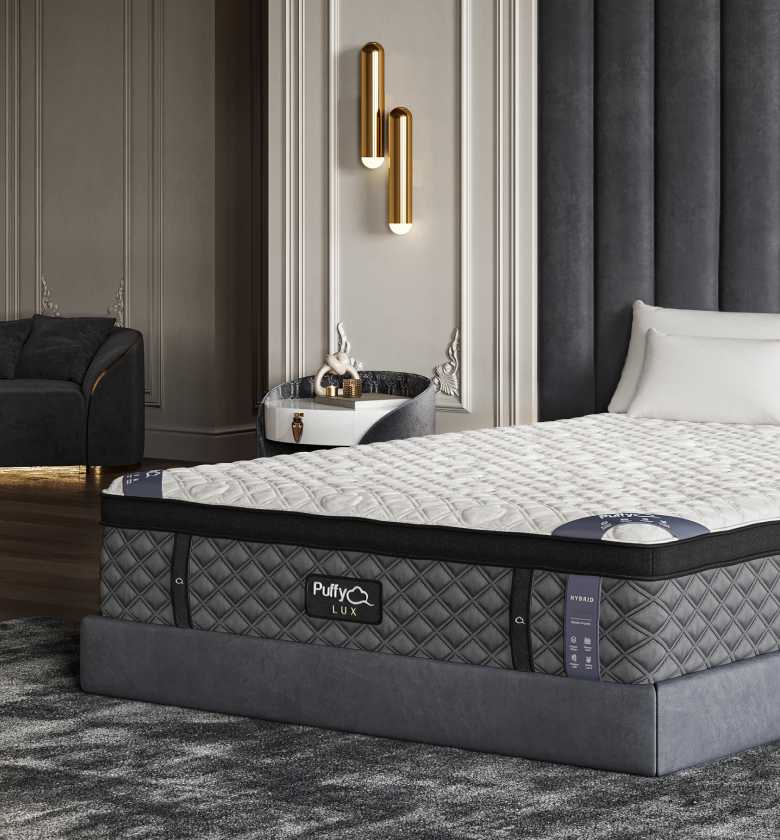
$1,350 in savings
Unlock your ultimate sleep solution with Puffy.
Explore our award-winning Puffy mattress collection with these extra luxury benefits:
- Award-winning comfort.
- Lifetime warranty.
- 101-night sleep trial.
- Free shipping and returns.
- 100% made in USA.
